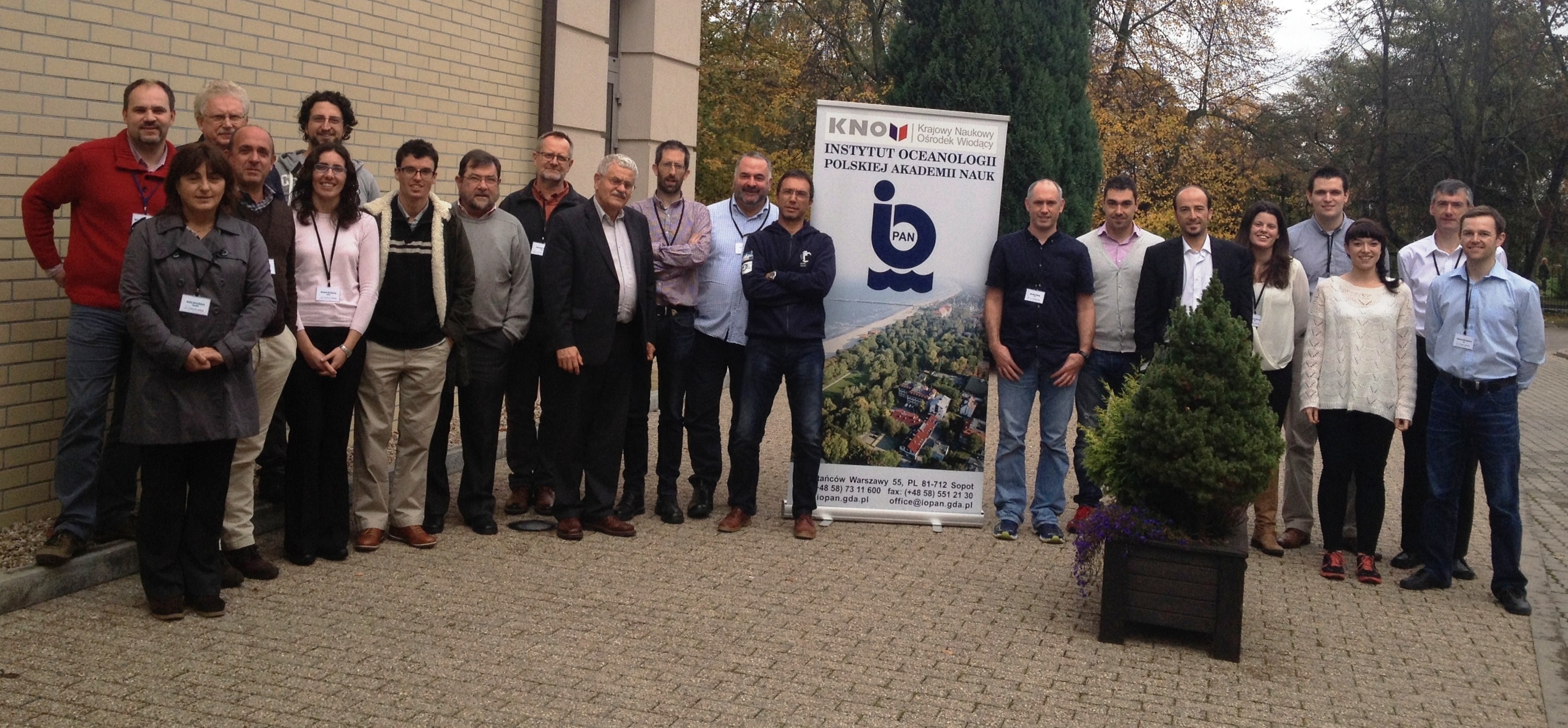COMMON SENSE Consortium Discuss Effective MSFD Implementation
The COMMON SENSE project’s annual partner meeting was held in Sopot, Poland, from 14-16 October 2014. The meeting, hosted by the Institute of Oceanology of the Polish Academy of Sciences (IOPAN), brought the COMMON SENSE consortium together to discuss the progress of the project and to partake in collaborative workshops.
COMMON SENSE will run until February 2017 with an overall budget of €6.07 million. The project will receive a total of €4.66 million of EU funding under the OCEAN 2013.2 area of the Seventh Framework Programme (FP7). This is a cross-thematic call reflecting the EU’s focus on major sea-related challenges. The projects involved will work towards delivering sustainable and innovative solutions to fully reap the potential of our oceans.
COMMON SENSE is coordinated by Spain’s LEITAT Technological Centrewhich leads a strong partnership of fifteen institutions from Ireland, Italy, Poland, Former Yugoslav Republic of Macedonia, Germany, Spain and the UK.
COMMON SENSE aims to develop innovative, cost-effective sensors that will increase the availability of standardised data on: eutrophication; concentrations of heavy metals; microplastic fraction within marine litter; underwater noise; and other parameters such as temperature and pressure.
During the meeting, partners engaged in participatory policy workshops where they collaborated to identify the most significant barriers to implementation of the Marine Strategy Framework Directive (MSFD). This was followed by an extensive review meeting where the progress of each of the project’s work packages was presented and evaluated in order to ensure good project development, the achievement of project objectives, and the successful delivery of project results.
Jose Alberto Saez, COMMON SENSE Project Coordinator, said: “The COMMON SENSE project aims to provide the latest generation of sensing technologies to support the effective implementation of the MSFD. During this first year of work, we have established the basis for cooperation between the multi-disciplinary and multi-national project team that will enable the achievement of our ambitious goals and will ensure the success of this exciting initiative.”
Under the MSFD, EU Member States are expected to assess the overall status of their marine environments and to put in place the necessary measures to achieve Good Environmental Status (GES) by 2020. Member States must implement cost-effective monitoring programmes in order to achieve MSFD monitoring objectives, as well as other European maritime and environmental policies such as the Common Fisheries Policy (CFP). Through the development of automatic, low maintenance and efficient sensors, the tools provided by the COMMON SENSE project will support effective monitoring of our waters and so help protect the marine environment in Europe, enabling a sustainable use of them.
The COMMON SENSE consortium comprises six SMEs, five research development institutes, three universities and one foundation. The consortium’s expertise and geographical distribution will enable multidisciplinary marine environmental monitoring of key marine regions, including the Baltic Sea, the north-east Atlantic Ocean and the Mediterranean Sea.
For further information about COMMON SENSE, please contact COMMON SENSE Coordinator LEITAT Technological Centre www.leitat.org, by means of the Maritime Division (leimar@leitat.org).

